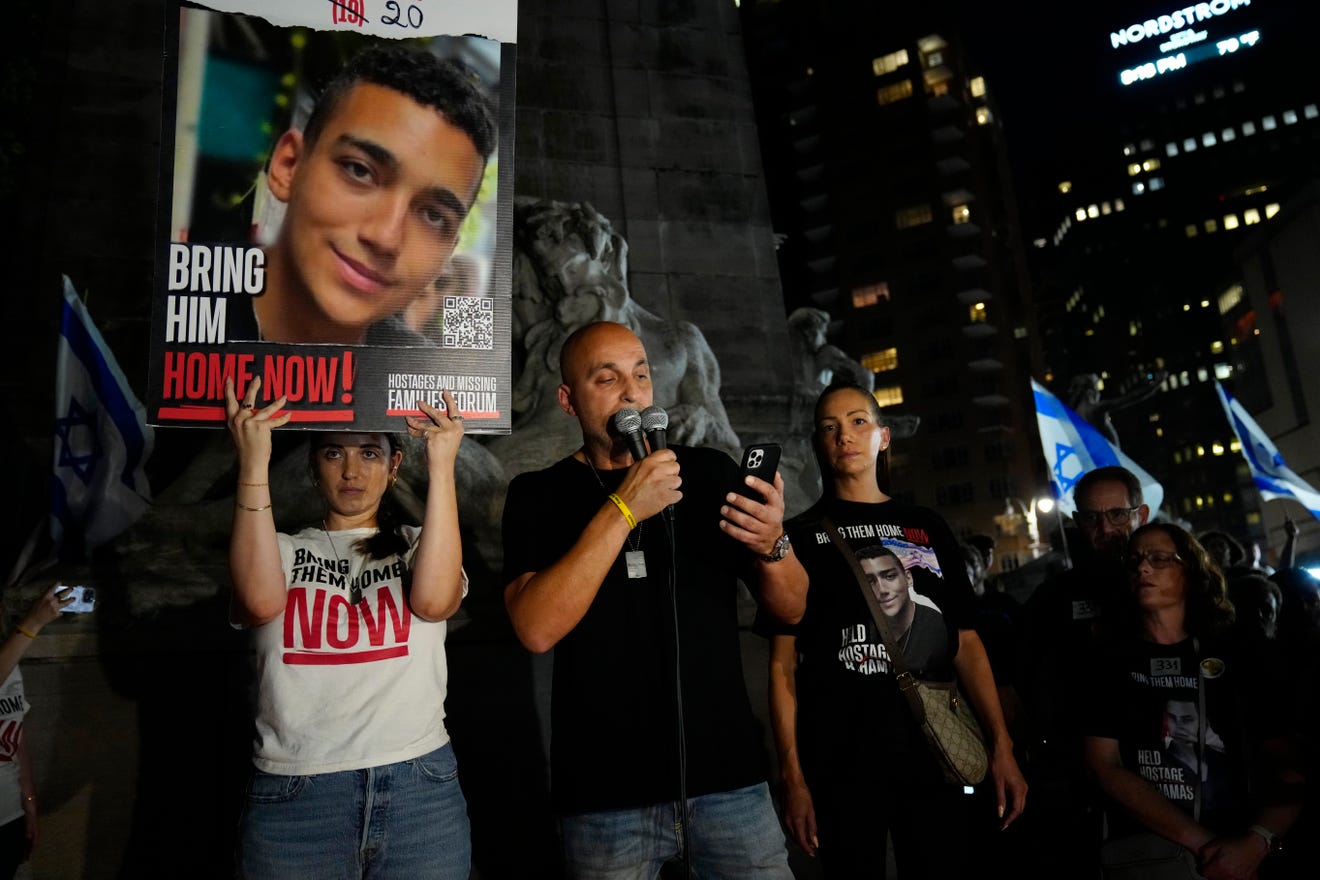US Urged To Negotiate With Hamas: Father Of Captured Son Edan Alexander Remains Hopeful

Table of Contents
The Father's Desperate Appeal and the Growing Pressure on the US Government
Edan Alexander's father has become a symbol of parental anguish, his public pleas a raw testament to the human cost of this conflict. In emotional interviews and statements, he has directly appealed to the US government, urging them to prioritize negotiation over military action to secure his son's release. His words paint a heartbreaking picture of fear and uncertainty, yet also unwavering hope for a peaceful resolution. He has stated (insert hypothetical quote expressing hope and fear), highlighting the desperation felt by families of the hostages.
This heartfelt appeal is not an isolated voice. The pressure on the US government to engage in negotiations with Hamas is mounting. Various human rights organizations, political figures, and concerned citizens are actively campaigning for dialogue.
- Public Pressure: Online petitions with thousands of signatures, organized protests outside government buildings, and significant media coverage are putting intense pressure on US policymakers.
- Key Figures: Prominent figures (mention specific names and titles, e.g., senators, human rights activists) have publicly endorsed the idea of negotiating with Hamas, emphasizing the humanitarian aspect of the situation.
- Public Opinion: While precise statistics may be unavailable at this time, anecdotal evidence and social media trends suggest a significant portion of the public supports exploring the avenue of negotiation to secure the release of hostages.
Arguments for Negotiating with Hamas: A Complex Diplomatic Challenge
Advocates for negotiation argue that it represents the best chance of securing the safe return of hostages like Edan Alexander. While engaging with a designated terrorist organization presents undeniable complexities and risks, the potential benefits cannot be ignored.
- Potential Benefits: Successful negotiations could lead to the immediate release of hostages, a crucial step towards de-escalation of the conflict, and potentially pave the way for a more lasting peace.
- Challenges: Negotiating with Hamas is fraught with challenges. Deep-seated mistrust, conflicting agendas, and the organization's history of violence create significant hurdles to overcome. Building trust and establishing clear communication channels would be critical.
- Past Examples: (If applicable, cite historical instances of successful negotiations between the US or other nations and Hamas to bolster this argument).
Counterarguments and Concerns Regarding Negotiations with Hamas
Opponents of negotiation raise valid concerns about the potential risks involved. Engaging with Hamas could be perceived as legitimizing the organization's actions and potentially emboldening future acts of terrorism.
- Potential Risks: Concessions made during negotiations could be interpreted as rewarding terrorism and setting a dangerous precedent. There's also the risk that Hamas might exploit negotiations for its own political gains.
- Trustworthiness Concerns: Hamas's history of violence and broken promises raises serious questions about its trustworthiness as a negotiating partner. Ensuring good faith and verifiable agreements would be extremely difficult.
- Alternative Strategies: Some argue that alternative strategies, such as intelligence gathering, covert operations, and targeted sanctions, should be pursued before considering direct negotiations with Hamas.
The International Community's Role in Facilitating Negotiations
The international community can play a significant role in mediating negotiations between the US and Hamas. International pressure, combined with diplomatic efforts from neutral parties, could potentially incentivize Hamas to engage in good-faith dialogue.
- Mediating Parties: Countries like (mention specific countries with established relationships in the region) or international organizations such as the UN could potentially act as mediators.
- Successful Mediation: (Mention examples of successful international mediation in similar conflicts to illustrate the potential).
- Diplomatic Pressure & Sanctions: The coordinated application of sanctions and diplomatic pressure from the international community could significantly influence Hamas's willingness to negotiate.
Conclusion: The Urgency of Negotiation and the Future of Edan Alexander
The decision of whether or not to negotiate with Hamas is fraught with complexities, balancing the urgent need to secure the release of hostages like Edan Alexander against legitimate concerns about legitimizing terrorism. While risks are undeniable, ignoring the potential benefits of negotiation could have devastating consequences. The father's plea, the mounting public pressure, and the potential for international mediation all underscore the urgency of exploring all available avenues to achieve a peaceful resolution. We must urge our representatives to consider all options, prioritizing the safe return of hostages and the pursuit of peace. Contact your representatives today and demand action. #FreeEdanAlexander #NegotiateWithHamas #USForeignPolicy #HostageCrisis

Featured Posts
-
 Millions Undiagnosed The Reality Of Autism And Adhd In Britain
May 13, 2025
Millions Undiagnosed The Reality Of Autism And Adhd In Britain
May 13, 2025 -
 Five Script Changes How Beyonce Shaped Her Hollywood Role
May 13, 2025
Five Script Changes How Beyonce Shaped Her Hollywood Role
May 13, 2025 -
 Dooms Dark Ages Release Date Trailers And Game Details
May 13, 2025
Dooms Dark Ages Release Date Trailers And Game Details
May 13, 2025 -
 Oleksiy Poroshenko Potochne Mistseznakhodzhennya Ta Ostanni Novini
May 13, 2025
Oleksiy Poroshenko Potochne Mistseznakhodzhennya Ta Ostanni Novini
May 13, 2025 -
 Access Sky Sports Pl Retro High Definition Premier League Classics
May 13, 2025
Access Sky Sports Pl Retro High Definition Premier League Classics
May 13, 2025
